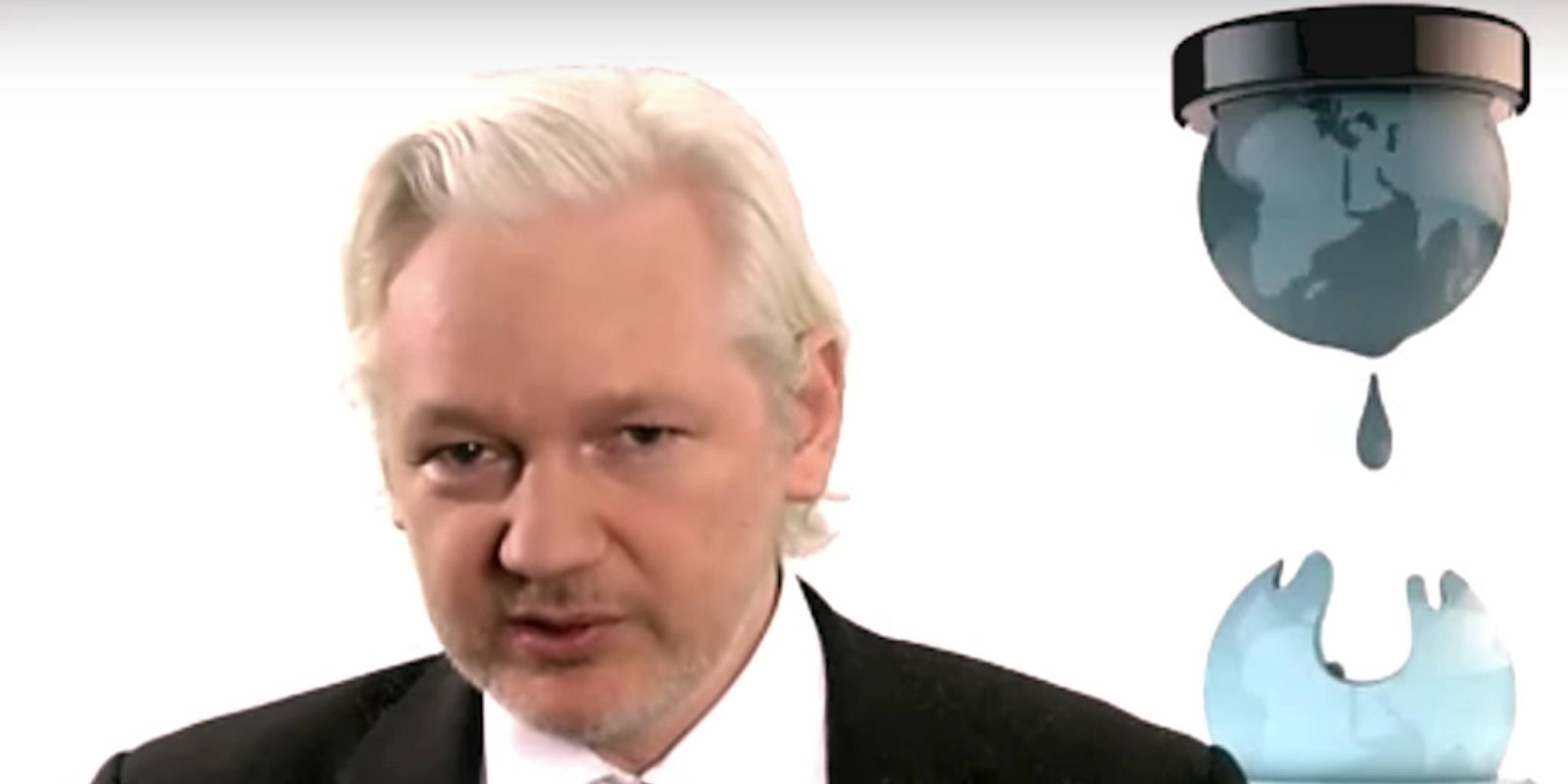Julian Assange was in a great mood during his appearance on Real Time with Bill Maher.
The Wikileaks editor in chief felt so jovial that he wryly stated that his organization was looking into releasing GOP nominee Donald Trump‘s tax returns—a claim that was refuted by the Wikileaks Twitter account on Saturday.
WikiLeaks isn’t ‘working on’ hacking Trump’s tax-returns. Claim is a joke from a comedy show. We are ‘working on’ encouraging whistleblowers
— WikiLeaks (@wikileaks) August 6, 2016
Maher and Assange discussed the DNC dump as well as what all it revealed on Friday night. Regarding the release of full credit card numbers from donors, Assange refuted the claim.
He stood by the release of nearly 20,000 emails from some of the most powerful figures in the Democratic party, stating that no one affected—not even former chair Debbie Wasserman-Schultz, who resigned following the emails’s release—had made any allegations against Wikileaks.
“We did not publish full credit card numbers of donors. It’s the last four digits, just like your 7-11 receipt,” Assange maintained. “Our materials, the materials that we release are pristine. We are really good at this. We have a 10 year perfect record of never having gotten it wrong.”
Soon after, Maher went for the throat, insinuating that Wikileaks was working with the Russian government when it began its DNC leaks release. Assange fired back by claiming that a William Maher had donated $1 million to a Clinton PAC, which Maher denied. Maher contended that the only $1 million donation he’d made had been his heavily publicized contribution to an Obama SuperPAC in 2012.
“The whole point of it was to make it public so that people in 2012 would understand that the game had moved to another level following our Citizens United ruling,” Maher explained. “I wasn’t trying to hide it. I was trying to publicize it. I don’t know what the point is.”
The tactic could be viewed as a distraction so as not to reveal further information about who Wikileaks has been working with to receive confidential DNC information. Much has been discussed about who’s behind the leak, yet Wikileaks and Assange have stayed mum on the subject.
Maher was able to steer the conversation towards criticisms about the DNC hack, specifically from NSA whistleblower and former Wikileaks source Edward Snowden. What was once a brief partnership has turned into a full-blown rivalry. Assange’s comments appeared to only further that rift:
“They are, a little bit that’s true. I suppose, well, he doesn’t really know the definition of curation. Curation is not censorship of the ruling political party’s cash flows. I have to make a little bit of a complaint here although I shouldn’t really go there. You know, Edward Snowden has published anything in three years. He did one thing and it was a very important thing. And it was in fact so important that I and this organization saved his ass by rescuing him from Hong Kong, getting him asylum, making 23 asylum applications, and setting up his defense fund, the Courage Foundation, which I am a trustee of today. So, OK, I know Edward [Snowden] is trying to get a pardon at the end of the Obama presidency so he’s playing that game. I understand. He’s in a very serious situation… Donald Trump said the he would execute him. Hilary Clinton said she would aggressively prosecute him.”
Snowden has yet to publicly respond to Assange’s insinuation that his criticisms were a move to garner favor with President Obama. Speculation abounds regarding Snowden’s safety, however. The privacy advocate tweeted then deleted a curious string of characters on Friday that may be the key to unlocking encrypted files he’d handed journalists.
Meanwhile, Assange was a featured guest at the Green Party National Convention, addressing the major political event via satellite on Saturday afternoon.
Julian Assange of @wikileaks discussing the crackdown on whistleblowers under the Obama administration. #GNCinHOU pic.twitter.com/2krECxGYjX
— Green Party US 🌻 (@GreenPartyUS) August 6, 2016
Assange spoke at length about none other than the way the United States treats whistleblowers like Snowden.


